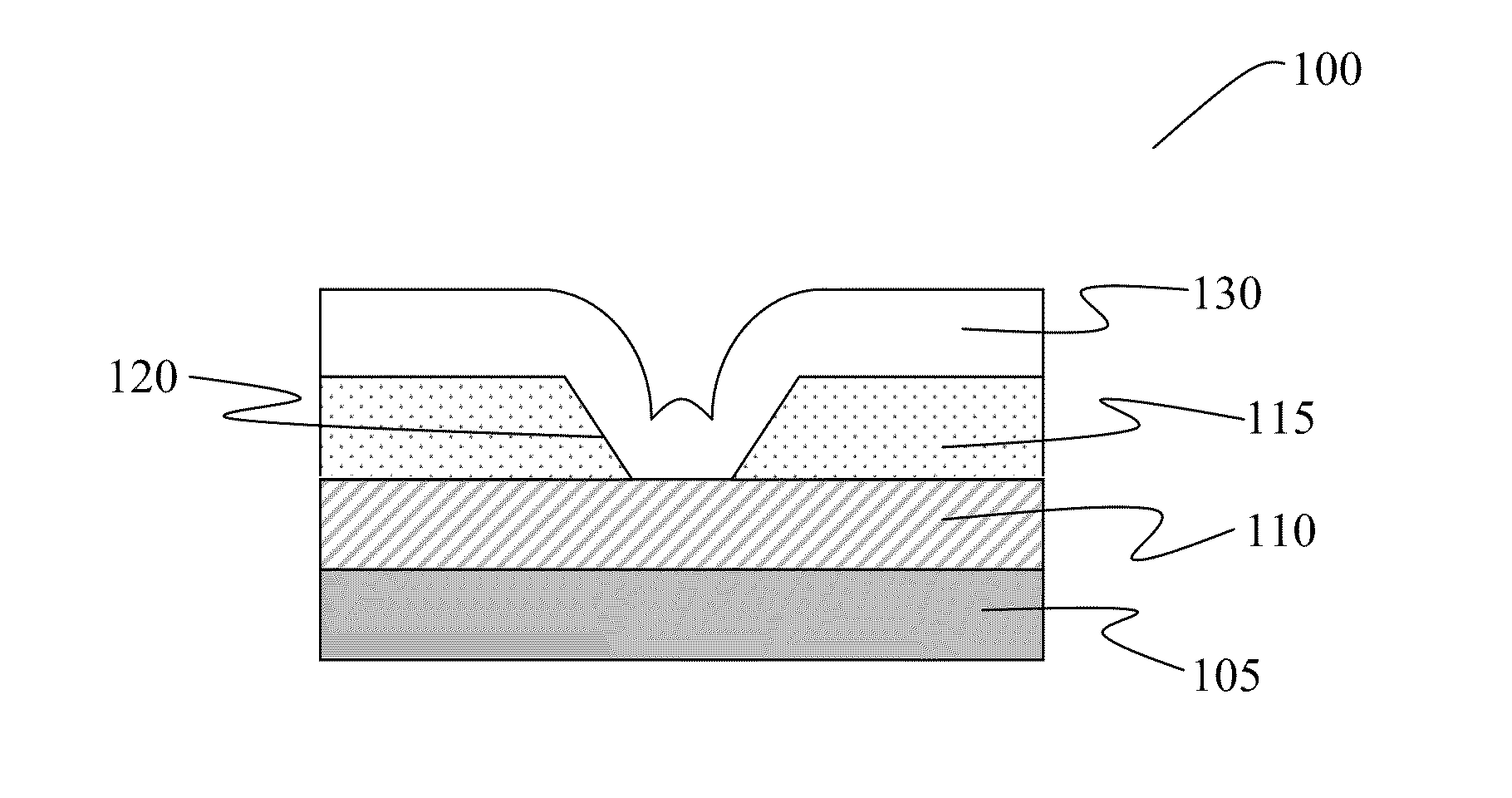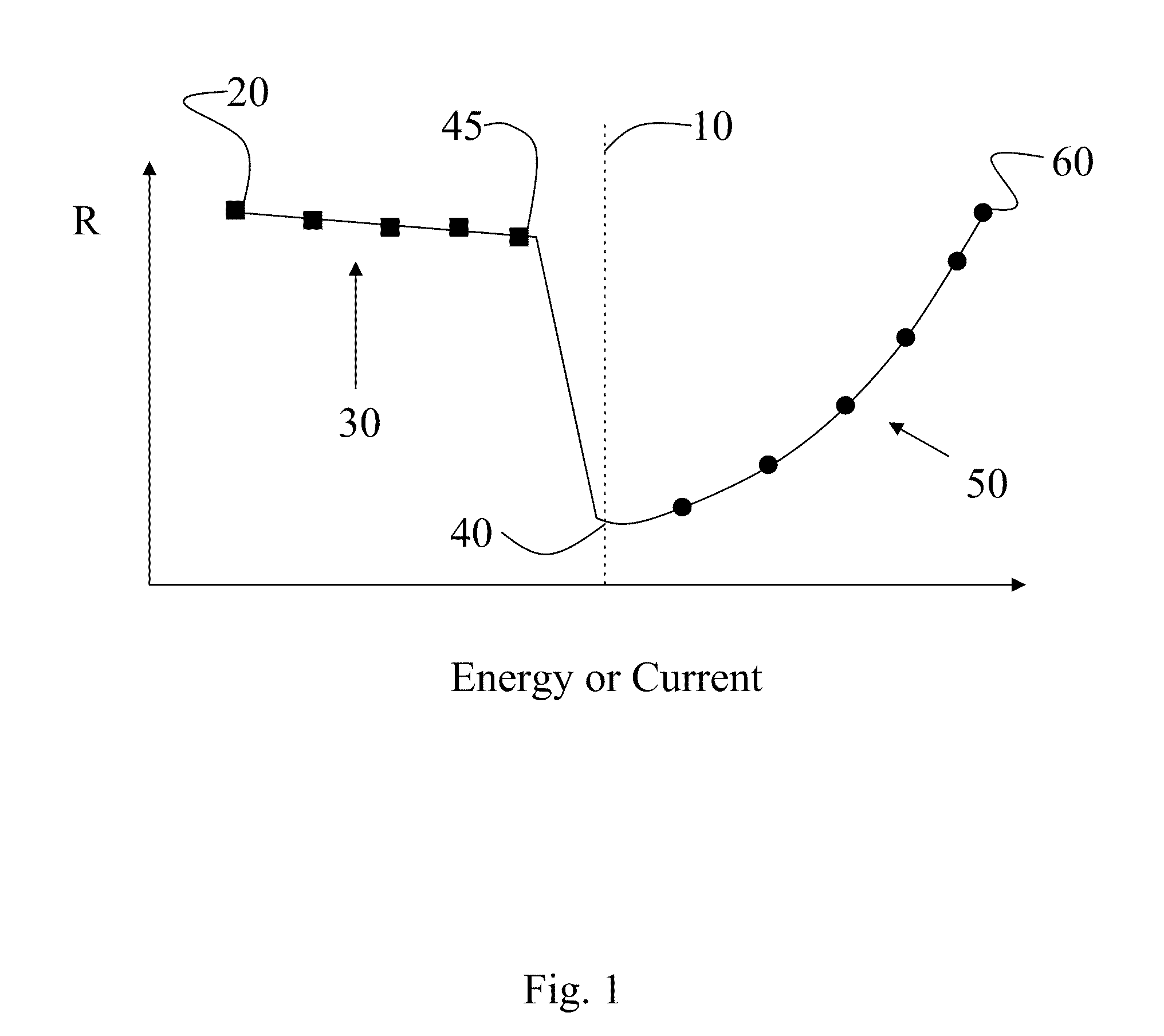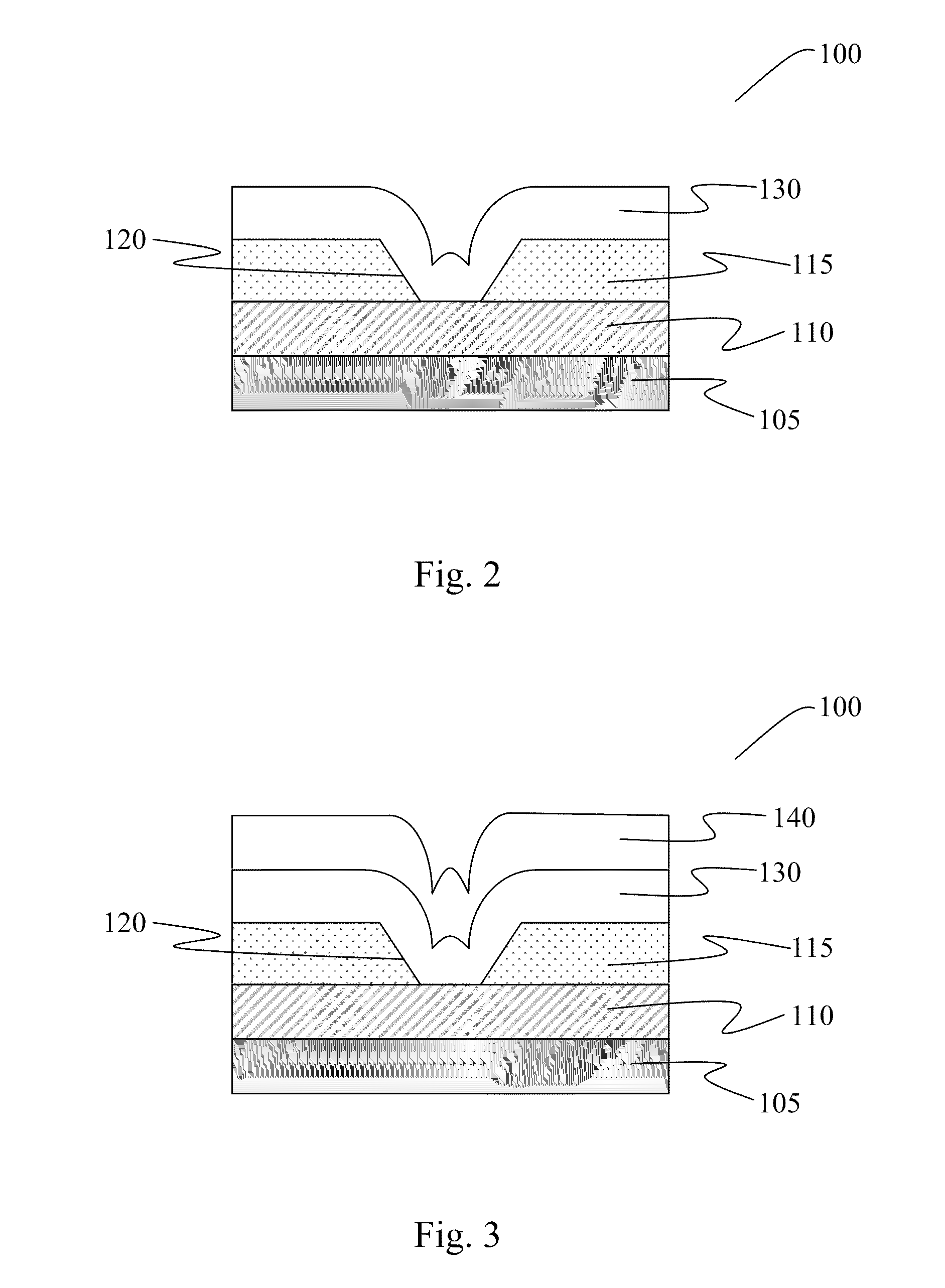Active Material Devices with Containment Layer
a technology of active materials and containment layers, which is applied in the direction of semiconductor/solid-state device manufacturing, basic electric elements, electric devices, etc., can solve the problems of volatilization and volumetric loss of active materials, and achieve the effect of preventing or inhibiting
- Summary
- Abstract
- Description
- Claims
- Application Information
AI Technical Summary
Benefits of technology
Problems solved by technology
Method used
Image
Examples
example 1
[0068]In this example, electronic devices having a pore cell design are compared and it is demonstrated that inclusion of a containment layer provides a significant extension of the cycle life of the device. A cross-sectional micrograph of the device used in this example is shown in FIG. 7. The device 200 includes substrate 205 that includes an oxide surface layer, a TiAlN lower electrode 210 (˜650 Å thick), insulator 215 (˜375 Å thick), active layer 220 that comprises a chalcogenide phase-change material (Ge2Sb2Te5) (˜750 Åthick), and a Ti / TiN upper electrode 225 (˜20 Å of Ti in contact with active layer 220 and ˜600 Å of TiN formed thereover).
[0069]Substrate 205, lower electrode 210, and insulator 215 formed a base wafer upon which active layer 220 and upper electrode 225 were deposited using a low temperature sputtering process. Electronic device 200 has a pore cell design analogous to that shown in FIG. 3. Note that active layer 220 occupies an opening in insulator 215 (near cen...
PUM
 Login to View More
Login to View More Abstract
Description
Claims
Application Information
 Login to View More
Login to View More - R&D
- Intellectual Property
- Life Sciences
- Materials
- Tech Scout
- Unparalleled Data Quality
- Higher Quality Content
- 60% Fewer Hallucinations
Browse by: Latest US Patents, China's latest patents, Technical Efficacy Thesaurus, Application Domain, Technology Topic, Popular Technical Reports.
© 2025 PatSnap. All rights reserved.Legal|Privacy policy|Modern Slavery Act Transparency Statement|Sitemap|About US| Contact US: help@patsnap.com



